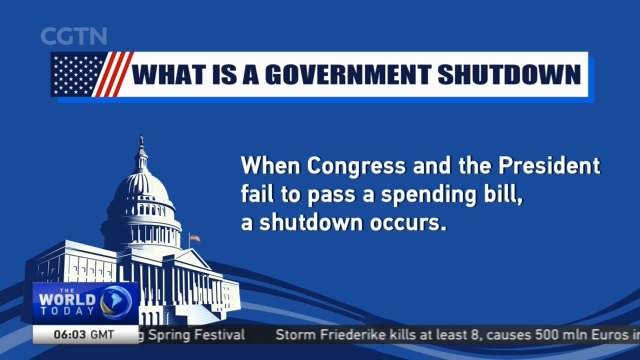
14:20, 20-Jan-2018
US Government Shutdown: A quick look at what a shutdown is and what will happen

Now what exactly is a government shutdown? And what happens if the US Congress doesn't hit its deadline to pass a spending bill? Let's take a quick look.
A government shutdown is basically what it sounds like. Much of the federal government gets its funding from annual budget appropriations decided by Congress. A shutdown occurs when Congress and the president fail to pass a spending bill before the deadline. Though essential government functions continue, hundreds of thousands of US government defense workers, park rangers and business regulators could be temporarily out of work. Government shutdowns have the effect of increased cost to the government due to lost labor. The American Federation of Government Employees estimates that if the shutdown does happen this time, nearly 40 percent of federal employees could be on unpaid furlough. That will cost the US an estimated 6.5 billion US dollars A WEEK -- until Congress reaches an agreement. Meanwhile government services will be disrupted. According to The Washington Post, disease monitoring and prevention will slow down. About 60 percent of the staff of the Centers for Disease Control will be furloughed. And much of the research-focused National Institutes of Health will be shuttered. National parks and museums will remain open and the Federal Aviation Administration, which oversees air traffic control, will remain at work, keeping airports open for travellers.

SITEMAP
Copyright © 2018 CGTN. Beijing ICP prepared NO.16065310-3
Copyright © 2018 CGTN. Beijing ICP prepared NO.16065310-3